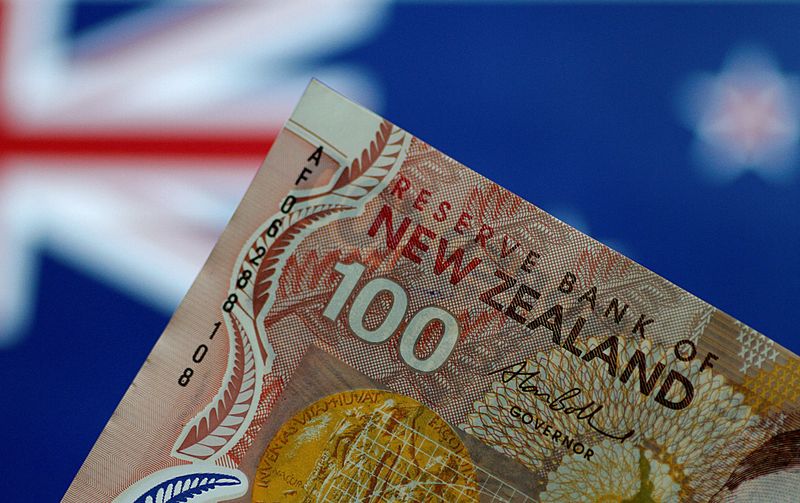NZ faces ‘shallow’ recession as rates need to rise more – senior central banker
2022.11.27 21:34
[ad_1]

© Reuters. FILE PHOTO: A New Zealand Dollar note is seen in this picture illustration June 2, 2017. REUTERS/Thomas White/Illustration/File Photo
By Stella Qiu
SYDNEY (Reuters) – New Zealand is likely facing a “shallow” recession as interest rates need to rise further to tame inflation, a top central banker said on Monday, suggesting that a pause in the policy tightening streak was still a distant prospect.
In an interview, Reserve Bank of New Zealand (RBNZ) Assistant Governor Karen Silk said the central bank would be closely monitoring high frequency data including on spending, business investment and housing when deciding on how much to hike rates when it next meets in February.
Inflation data for the fourth quarter, due on Jan. 25, will also be a key consideration.
“For us to start reversing where we are at in terms of the decisions or even dramatically slowing the pace of change, we need to see inflation data turn and we also need to see inflation expectations come down,” said Silk.
Last week, the central bank raised its official cash rate by a record 75 basis points to a near 14-year peak of 4.25% as it struggles to contain inflation currently running near three-decade highs.
Markets are leaning toward another hike of 75 basis points in February, and have fully priced in a peak of 5.5% by July next year.
The RBNZ has forecast that all of this tightening combined with a slowdown in global growth will trigger a year-long recession at home starting in mid-2023.
Silk said the projected 1% decline in gross domestic product over four quarters would be a “relatively shallow and technical” recession, partly reflecting a weaker global growth outlook.
“It does not compare to the likes of the slowdown that we saw in the GFC (global financial crisis) or even in the 1991 recession,” Silk added.
The recession during the global financial crisis lasted six quarters and led to a total fall in GDP of around 4 percentage points.
Silk said higher rates were justified by rising inflation expectations in New Zealand and the strength of the labour market which is driving wages higher.
Tourism has also been surprisingly strong in recent months and was expected to continue over New Zealand’s summer.
Silk said that the RBNZ’s aggressive tightening was not an outlier in the global central bank space, noting that the Bank of Canada has hiked by 100 basis points and the U.S. Federal Reserve has raised rates by multiple 75-basis-point moves.
“If you look at some of the peak indicators of peak rates, for the Fed for example, that’s very similar to our latest OCR track as well. So I wouldn’t put New Zealand out there as really being substantially more aggressive than many others.”
Fed members have generally projected rates could rise as far as 5.0 to 5.25%, with some even expecting a higher peak.
[ad_2]
Source link







